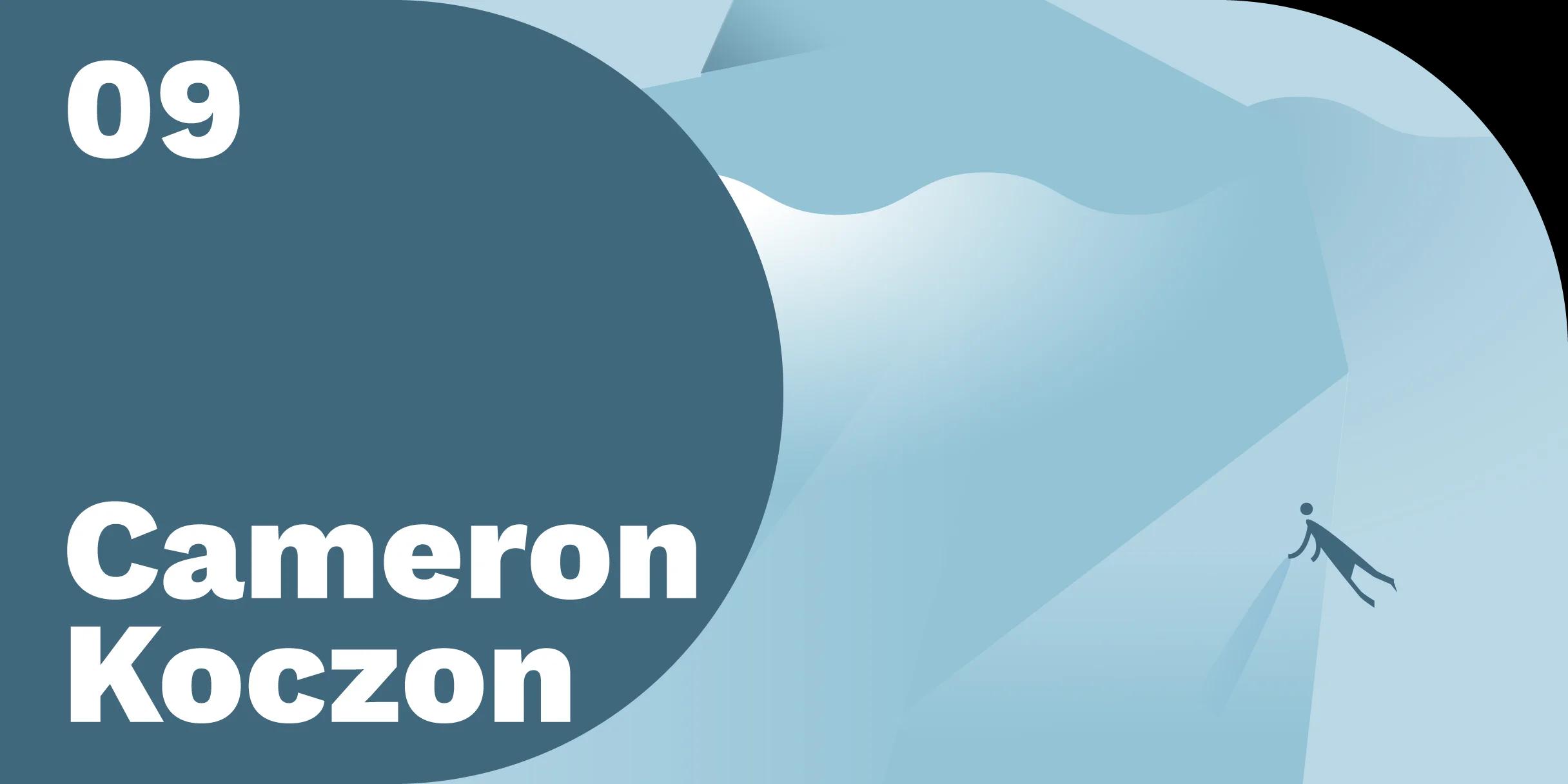
Design Notes, Episode 9
Fictive Kin’s Cameron Koczon on understanding the foundational impact of design
Cameron Koczon is a Partner at Fictive Kin, a New York-based design and engineering studio whose unique approach to product development starts with “a Seinfeld”—an app that does nothing—and ends with a polished core experience. In this episode of Design Notes, Koczon and host Liam Spradlin explore what it means to own content online, the difficulties of learning product design, and how designers can create meaningful change by focusing on the impact of their work.
Highlights:
On design’s foundational role “Design is not decoration—it's foundation. It's not the molding on the building. It's the underlying architecture.”
On the difficulty of learning product design “Product design is a hard thing to learn because you can't learn it unless you design a product from scratch, launch that product … and make it better. So that's like trying to get good at playing the guitar by playing one C chord a month. It just takes for freaking ever to get good.”
On Fictive Kin’s product development process “The first thing we make is called a ‘Seinfeld,’ which is an app that does nothing. You literally can't do anything. So it's like ‘Okay, cool, done—that's step one.’ Then we can get more strategic about how we add features, but features have to fight their way in. What we say to clients is, ‘Take all your features and pull a feature out, and if what you have left is still a product then that is not going first.’”
On the role of a designer “A designer should be able to break a problem down to its component parts, come up with a plan, and put it together the way that's best suited for the job.”
Handy info and links for this episode:
- Fictive Kin led the redesign of Rookie, an online magazine founded in 2011 by Tavi Gevinson.
- Brooklyn Beta was a conference running from 2010 to 2015 with the goal of building a community of the “nicest people on the internet.”
- In 2011, Koczon defined the terms “content liberation” and “content shifting” in a piece for A List Apart.
- In “An Important Time for Design,” Koczon detailed the ways in which designers can use the growing demand for design at startups to solve bigger problems, high-impact problems.
- In his 2014 essay, “Designer Duds,” product design manager Mills Baker warns that if designers fail to recognize the tangible results of what they’re doing, design itself will “lose its seat at the table.”
- TeuxDeux is a “simple, designy to-do app” developed in-house by Fictive Kin.
- Download a PDF transcript of Design Notes, Episode 9.
Listen and subscribe:
- Google Play
- iTunes
- Pocket Casts
- Spotify
- Deezer
- RSS
In the next episode of Design Notes, guest host Amber Bravo speaks with architecture critic and author Alexandra Lange about her upcoming book, The Design of Childhood: How the Material World Shapes Independent Kids. They examine how the design of the built environment interacts with childhood development, the origin and evolution of building blocks, and the magic of the cardboard box.
Have feedback for Design Notes? Send an email and let us know what you think!